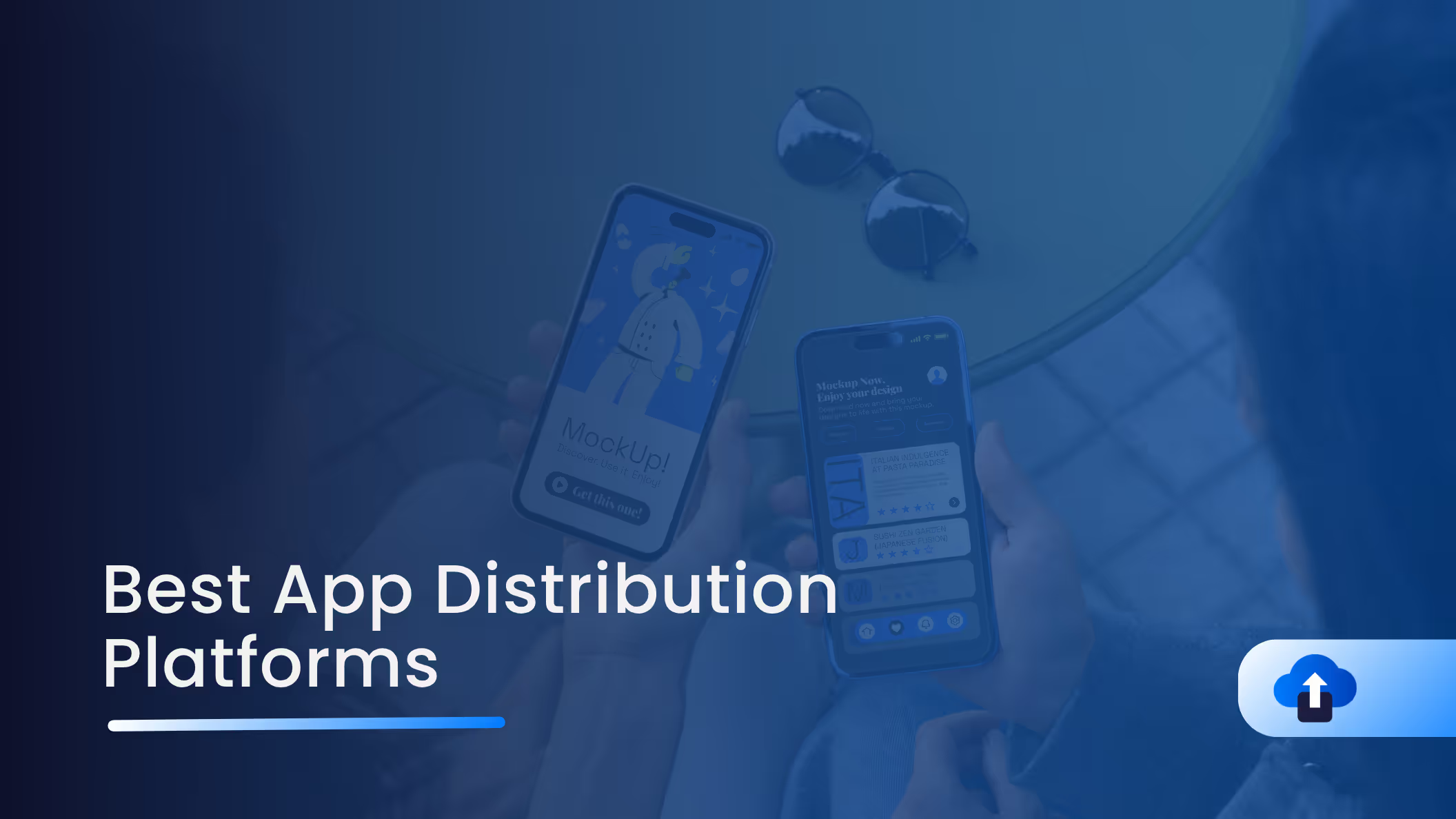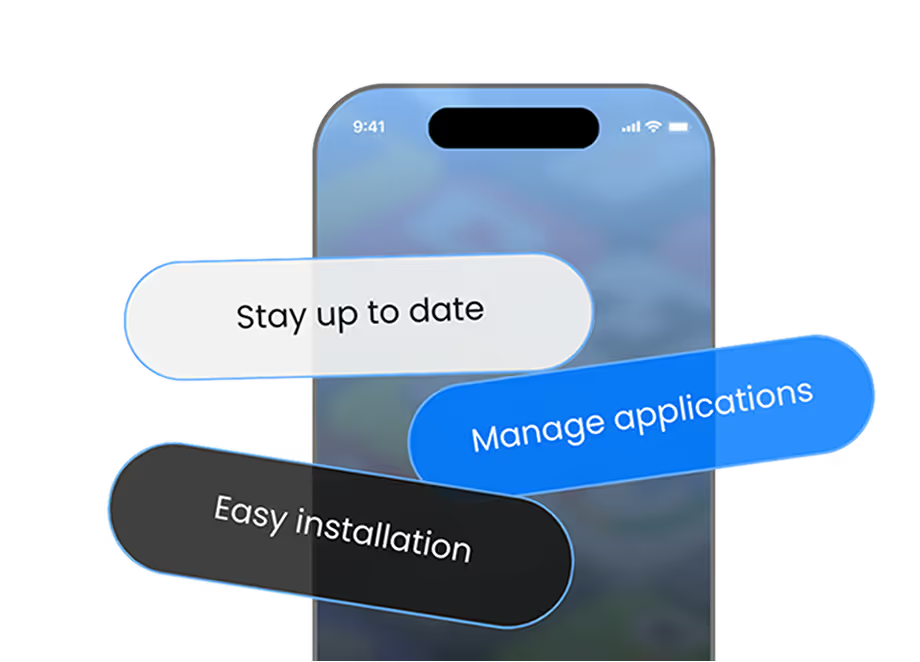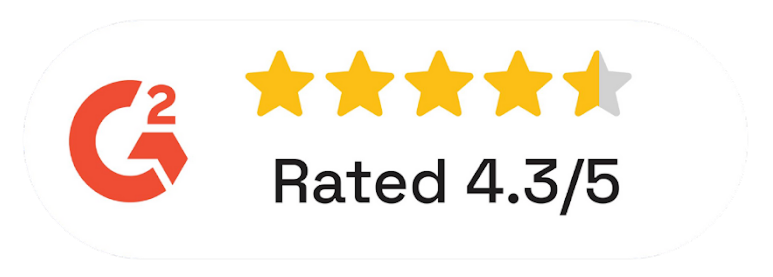
Today, mobile app development has become more dynamic than ever. With frequent updates, diverse testing needs, and tight release schedules, developers require reliable methods to share their apps with testers, clients, and internal teams.
Selecting an effective app distribution platform isn't just a technical decision, it's about streamlining workflows and ensuring timely feedback.
This guide explores various app distribution platforms available today, highlighting their features and benefits.
We'll also delve into AppsOnAir, a platform that's been gaining attention for its simplicity and efficiency in over-the-air (OTA) app distribution.
Understanding App Distribution Platforms
App distribution platforms are tools or services that enable developers to deliver their applications to users, testers, or stakeholders. They play a crucial role in:
- Testing: Facilitating beta testing by distributing pre-release versions to selected users.
- Deployment: Ensuring smooth delivery of applications to end-users.
- Feedback Collection: Gathering user insights to refine app performance.
Key considerations when choosing a platform include:
- Platform Compatibility: Support for Android, iOS, or cross-platform apps.
- Ease of Use: User-friendly interfaces and straightforward workflows.
- Security: Features like password protection and access controls.
- Update Mechanisms: Capabilities for real-time or scheduled updates.
Top App Distribution Platforms in 2025
1) AppsOnAir
Overview
AppsOnAir is a cloud-based OTA app distribution platform designed to simplify the process of sharing Android (APK) and iOS (IPA) builds with testers, clients, and internal teams.
Key Features:
- Super Fast Upload & Instant Sharing: Drag-and-drop functionality allows for quick uploads, generating shareable links instantly.
- Real-Time Updates (CodePush Alternative): Push updates instantly without requiring app store approvals, facilitating smooth migration from App Center.
- Access Control & Security: Password-protected links and customizable access permissions ensure secure distribution.
- Version History & Rollbacks: Maintain a history of all uploaded builds, enabling easy rollbacks to previous versions.
- UDID Retrieval for iOS Testing: Simplify the process of obtaining UDIDs from iOS testers, streamlining device registration.
- Analytics Dashboard: Monitor statistics such as the number of releases, uploads, and downloads.
- Group Management: Organize team members into groups for targeted distribution and efficient collaboration.
- Mobile Accessibility: Access all releases directly on your device and send notifications about new app releases via the AppsOnAir mobile app.
Ideal For:
- Indie Developers & Small Teams: Seeking a straightforward solution to distribute app builds without the overhead of app store submissions.
- Enterprise & FinTech Applications: Requiring secure, controlled distribution of sensitive applications.
- React Native & Flutter Developers: Looking for a CodePush alternative with real-time update capabilities.
2) Apple App Store
Overview
The official platform for distributing iOS applications, offering a vast user base and robust monetization options.
Pros:
- Access to a large, global audience.
- Comprehensive developer tools and analytics.
Cons:
- Strict app review process can delay releases.
- Limited flexibility for beta testing compared to other platforms.
3) Google Play Store
Overview
The primary distribution platform for Android applications, known for its extensive reach and integration with Google's ecosystem.
Pros:
- Wide user base across various devices.
- Flexible release options, including staged rollouts.
Cons:
- App approval process can be unpredictable.
- Less control over distribution compared to OTA platforms.
4) Firebase App Distribution
Overview
A service by Google that allows developers to distribute pre-release versions of their apps to testers.
Pros:
- Seamless integration with other Firebase services.
- Supports both Android and iOS platforms.
Cons:
- Lacks real-time update capabilities.
- Limited access control features compared to AppsOnAir.
5) TestFlight
Overview
Apple's official beta testing platform for distributing iOS apps over the air.
Pros:
- Direct integration with the Apple ecosystem.
- Supports up to 10,000 testers.
Cons:
- Requires app review before distribution.
- Limited to iOS platforms only.
6) Diawi
Overview
A simple tool for developers to deploy development and in-house applications directly to devices.
Pros:
- No registration required.
- Easy to use with QR code sharing.
Cons:
- Limited security features.
- No version history or rollback capabilities.
7) Install On Air
Overview
A platform for distributing iOS and Android applications over the air.
Pros:
- Simple sharing via links or QR codes.
- No need for app store submissions.
Cons:
- Limited analytics and access control features.
Choosing the Right Platform for Your App
1) Understand Your Needs First
Start by asking a few simple questions:
- Who needs access to the app? Testers, clients, or internal teams?
- How do you want to share it, through a direct link or QR code?
- Are you distributing on iOS, Android, or both?
- Are you managing different versions like dev, staging, and production?
These answers help you figure out which platform fits your workflow.
For instance, if you’re updating builds regularly or sharing them with less tech-savvy users, you’ll want something that’s quick and easy for everyone.
How Appsonair fits:
It supports iOS and Android, and you can share builds using short links or QR codes. It's great for anything from internal testing to demos for clients.
2) Make Sure It’s Easy to Use
Uploading and sharing apps should be straightforward. You don’t want to waste time explaining how to install a test build.
The platform should be simple on both ends, for the person uploading and for the person installing.
Why Appsonair works well:
You just drag and drop your build. It gives you a shareable link and QR code instantly.
Testers don’t need to log in or install any special tools. It’s as easy as clicking a link.
3) Security Shouldn’t Be an Afterthought
If you're sharing pre-release apps or internal builds, you’ll want some control over who gets access.
That means being able to set passwords, limit downloads, and maybe even expire links after a while.
What Appsonair offers:
You can protect your app link with a password, set expiration dates, and control who can access the download. That makes it a good fit for companies that want to share apps privately.
4) Version Management Helps More Than You Think
During development and testing, you’re going to push updates, sometimes daily. A good platform should make it easy to keep track of different versions and update users without confusion.
What Appsonair does well:
You can manage multiple builds, add labels, and keep track of release notes. You don’t need to send a new link every time; either just upload a new build, and the same link works.
5) Customization Can Make a Big Difference
If you're sending an app to a client or investor, you don’t want it to look generic. A little branding goes a long way in making your build look professional.
How Appsonair helps:
You can add your own logo, app icon, and release notes to the download page. You can even customize the background to match your brand.
6) Compare Cost with What You Get
Some platforms look free at first, but hide key features behind higher-priced plans. Others charge more than they should for basic tools.
How Appsonair helps:
You can add your own logo, app icon, and release notes to the download page. You can even customize the background to match your brand.



.svg)












